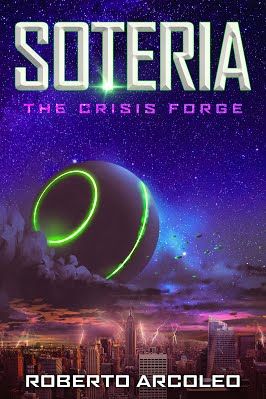
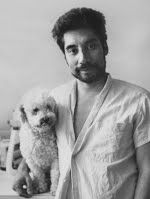
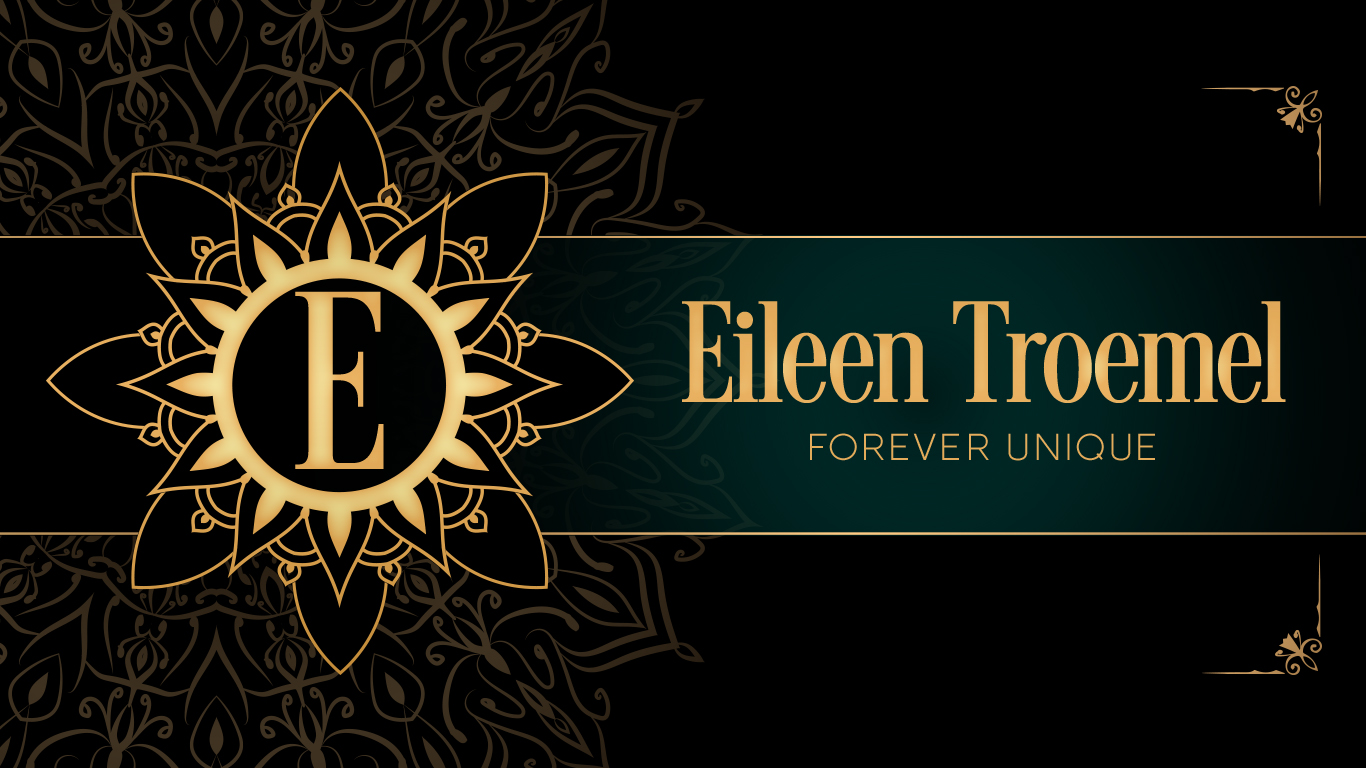


They are already here, entombed in a spaceship beneath Antarctic ice for thousands of years.
The ice is melting and they will soon be free.A huge rift in the ice is discovered in Antarctica that stretches for 18 miles, (29 km) and 820 feet (250 meters) apart at its widest point.
When environmental scientists enter the ice rift to check out an anomaly on NASA’s satellite scans of the area, they discover something far more life threatening than the raging blizzard trapping them in the rift. They are unarmed and unprepared for their ensuing fight for survival.
Note – Though Ice Rift – Salvage, is a continuation of the story from Ice Rift, it was brought about by readers feedback saying they would like to read a follow on book. Ice Rift can be read as a complete story. There is no cliffhanger or abrupt ending.
ICE RIFT – SIBERIA is the 3rd book in the best selling Ice Rift series. Ice Rift and Ice Rift – Salvage need to be read first to gain maximum enjoyment from this novel.
Having stowed aboard the Russian vehicle transporting the alien weaponry salvaged from the doomed Antarctic spaceship, the surviving fragment of EV1L arrives at a secret underground complex in the remote wilderness of the Siberian tundra.
It will hide.
It will feed and grow.
It will breed.
When all is ready, EV1L and her hoard of vicious offspring will emerge from the facility and head for the nearest city to start their conquest of Earth.
When the Americans intercept a plea for help from the secret facility and learn of the alien menace, a crack team is rushed to Siberia. Their mission is to destroy the alien creatures before they escape.
If they fail, it could bring about the end of human civilization.




After Mike goes through a gut-wrenching betrayal by his fiancée, he finds himself in what he thinks might be the afterlife. But this is no heaven. The gods made a mistake and created another Earth in a parallel universe, putting both universes in peril. They need someone from his planet to destroy the alternate, and Mike is randomly selected for the job. Trapped in an impossible choice, Mike accepts his mission and is returned to an Earth – and a body – so unlike his own. There, he meets Jane, who is – unbeknownst to him – the secret leader of an organization bent on tracking down Earth’s saboteur. In the face of her passion for humanity, Mike’s resolve falters. If Mike won’t complete his mission, the gods will.





 After working for several years as a professor in Brazil, C. Hofsetz moved to the United States and changed careers. Currently, he is a Software Engineer Manager at Microsoft by day, and a writer by night.
Software engineering and computers have been his passion since he was a teenager, but he’s been reading novels for longer than writing code. One day, he couldn’t help it anymore. He wrote the first chapter of a book. How bad could it be? But things escalated quickly. Next thing he knew, he was writing yet another chapter, and then the next. He tried to hide it, but his family knew he was up to something.
When they figured out what he was doing, it was too late—he accidentally had written a whole book.
The result of this journey is Challenges of The Gods, a story about a fantastic world of gods meddling with humans.
After working for several years as a professor in Brazil, C. Hofsetz moved to the United States and changed careers. Currently, he is a Software Engineer Manager at Microsoft by day, and a writer by night.
Software engineering and computers have been his passion since he was a teenager, but he’s been reading novels for longer than writing code. One day, he couldn’t help it anymore. He wrote the first chapter of a book. How bad could it be? But things escalated quickly. Next thing he knew, he was writing yet another chapter, and then the next. He tried to hide it, but his family knew he was up to something.
When they figured out what he was doing, it was too late—he accidentally had written a whole book.
The result of this journey is Challenges of The Gods, a story about a fantastic world of gods meddling with humans.

 Alfred Tam was born in San Francisco, CA and raised in the Bay Area. Growing up as a first generation Chinese American, he was fascinated with cartoon voices and would mimic both American cartoon characters as well as his favorite anime heroes. Alfred went on to study biochemistry in University of California: San Diego, with additional courses in German and French language. He eventually pursued a career in veterinary medicine at Ross University School of Veterinary Medicine.
His passion for public speaking and voice over had not deteriorated, however, and he started the first veterinary public speaking club during his medical training. After finally completing his degree, Dr. Tam began narrating for podcasts, YouTube videos, and audible. His most favorite genre is science fiction, both to read and narrate, because of the infinite possibilities these worlds could provide by changing one simple rule of physics and mathematics.
Alfred is fluent in English and Chinese, proficient in Spanish, and knows basic German and French. You can find Dr. Tam practicing emergency veterinary medicine in South Florida (starting 2020) and primarily hear his voices on audible. Otherwise, he could be found at the beach throwing the frisbee with his Golden Retriever, Lady, or air-balling three-pointers on the basketball court.
Alfred Tam was born in San Francisco, CA and raised in the Bay Area. Growing up as a first generation Chinese American, he was fascinated with cartoon voices and would mimic both American cartoon characters as well as his favorite anime heroes. Alfred went on to study biochemistry in University of California: San Diego, with additional courses in German and French language. He eventually pursued a career in veterinary medicine at Ross University School of Veterinary Medicine.
His passion for public speaking and voice over had not deteriorated, however, and he started the first veterinary public speaking club during his medical training. After finally completing his degree, Dr. Tam began narrating for podcasts, YouTube videos, and audible. His most favorite genre is science fiction, both to read and narrate, because of the infinite possibilities these worlds could provide by changing one simple rule of physics and mathematics.
Alfred is fluent in English and Chinese, proficient in Spanish, and knows basic German and French. You can find Dr. Tam practicing emergency veterinary medicine in South Florida (starting 2020) and primarily hear his voices on audible. Otherwise, he could be found at the beach throwing the frisbee with his Golden Retriever, Lady, or air-balling three-pointers on the basketball court.


 Oct. 24th:
Valerie Ullmer | Romance Author
Nesie’s Place
Oct. 25th:
Viviana MacKade
Oct. 26th:
Dab of Darkness Book Reviews
Oct. 27th:
Eileen Troemel
Oct. 28th:
4 the Love of Audiobooks
Oct. 29th:
Jazzy Book Reviews
Oct. 30th:
Southern Girl Bookaholic
Chapter Break
Oct. 24th:
Valerie Ullmer | Romance Author
Nesie’s Place
Oct. 25th:
Viviana MacKade
Oct. 26th:
Dab of Darkness Book Reviews
Oct. 27th:
Eileen Troemel
Oct. 28th:
4 the Love of Audiobooks
Oct. 29th:
Jazzy Book Reviews
Oct. 30th:
Southern Girl Bookaholic
Chapter Break

Plugging you into the audio community since 2016.
Ariel Paiement and I met through social media. We both share a love of fantasy.
Author Bio
Ariel Paiement is a fantasy author who writes the occasional historical fiction or science fiction novel. She enjoys all ranges of books and writing when it comes to reading, though fantasy and science fiction are her favorites. She likes to spend time coming up with new ideas or in wild flights of imagination. If asked what she spends most of her time doing, she’d tell you that she spends most of it reading or writing one thing or another. She is the author of On the Narrow Way in the anthology Above and Beneath: The World of Angels and Demons and has also written and published In Darkness Lost, a stand-alone fantasy adventure novel. Her novel, Bane of Ashkarith, is coming out on July 31st and is the first in the Legends of Alcardia series.
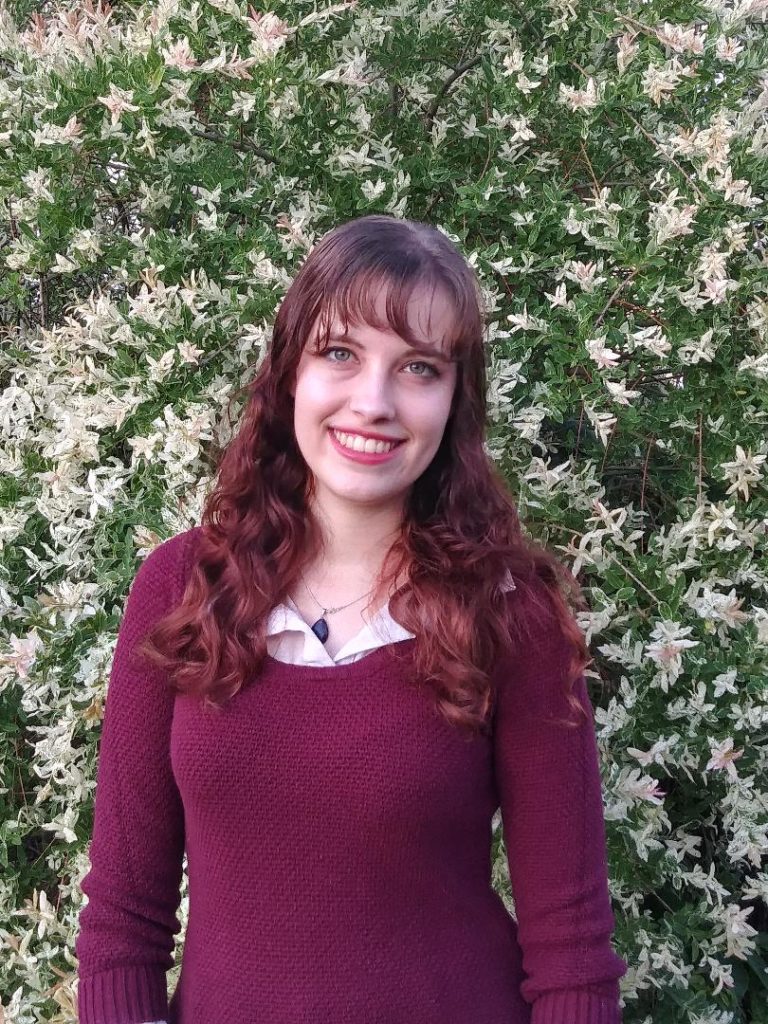
Tell us about yourself.
I’m a fantasy author who dabbles in some sci-fi and historical fiction. I also occasionally write Christian fiction. I’m not predominantly a Christian fiction author, but since I am a Christian, some of the traditional values from a Judeo-Christian worldview do come out in the books I write. Of course, that’s true of any author’s viewpoint since no one writes without a bias.
As a writer, one of the things that I’m committed to is showing that doing the wrong thing does have consequences on the characters and those around them. I realize this is becoming less and less important to many people, but I believe that showing that there are consequences to morally incorrect or generally poor decision-making is a part of making the books I write truer to reality.
Besides creating well-rounded characters, I’m pretty big on world-building. I love creating and fleshing out the worlds I place my characters in, and in many cases, the worlds become almost like another character in the book’s cast for me. My goal with every book is to immerse the reader in the world through the character’s eyes so that the reader can have the full high fantasy or alternate world fantasy experience.
But above all, my greatest goal with each book I write is to create something that people of varied backgrounds and age groups can enjoy. While not every book will be “family-friendly” or YA, I strive to have a variety so that younger and older readers can find something within the worlds I’ve created that will appeal to them.
When did you know you wanted to be an author?
I’m not sure I had a specific defining moment where I thought, yeah, I’m going to be an author. I’ve been writing since I was pretty young, and I always wanted to tell my stories to the rest of the world, so I guess you could say that the idea of being an author started fairly young even if I didn’t have enough understanding of the concept at the time to put a label on it.
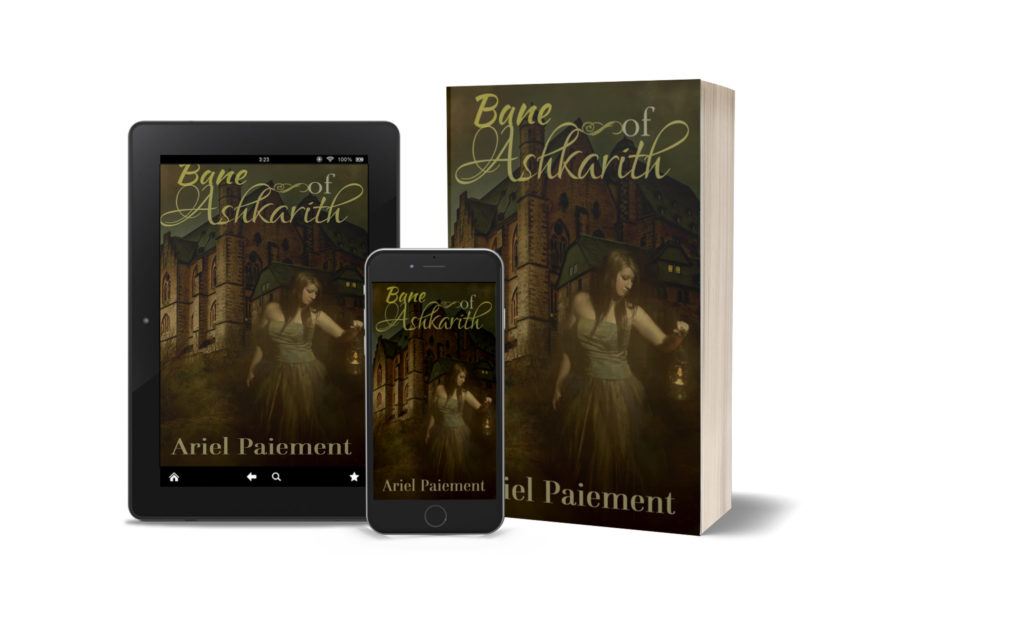
What genres do you like to read? Are these the same genres you write in?
Definitely fantasy and sci-fi! But I also enjoy lots of other genres. I’m not a particularly picky reader, though my favorites tend to be fantasy, sci-fi, and paranormal. Those are pretty much the same genres I write, though I haven’t really done anything paranormal. I stick to fantasy and the occasional sci-fi short story or experimental piece.
Is your book for adults, young adults or children?
Bane of Ashkarith is suitable for anyone in their pre-teens or above. The book is written to appeal mainly to a young adult and adult audience, but it doesn’t contain content that would be objectionable for older children to enjoy. There is some violence and a bit of gore in places, but nothing extreme, and there are only a few places where it’s shown.
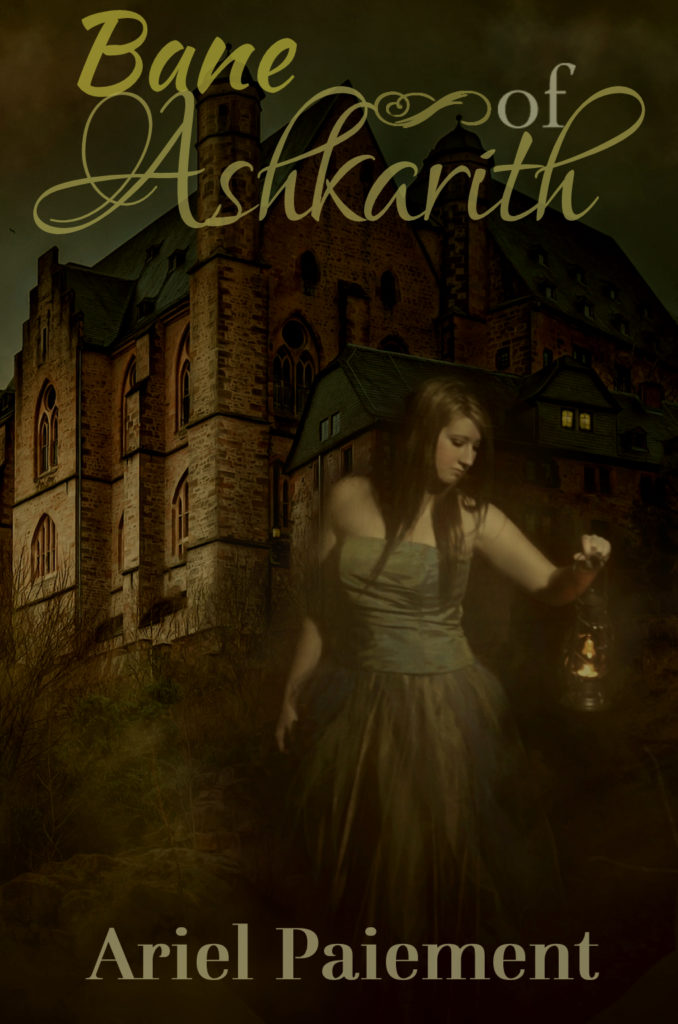
What is your current release or project?
Bane of Ashkarith is my current release with the revised version of In Darkness Lost, my first published novel, following it at the end of November.
Tell us about the key characters
The two main characters in Bane of Ashkarith are a husband-and-wife team. They work as Seekers—their world’s equivalent of archaeologists—for the Society of the Learned, or the Society for short. The two of them specialize in the mythology of their world, and on a dig site, while trying to prove that there really was a battle between the gods there, they come across a journal that belongs to the Queen of one of the sides in the battle. This sends them off on a mission to determine the validity of the journal’s claims.
Both characters are stubborn and determined, and both value truth a great deal. They risk life and limb throughout the novel’s course just to find out whether or not the diary is telling the truth about what happened between the supposed gods of the old world. They keep going despite the dangers and uncertainty, and they work well as a team through the whole thing.
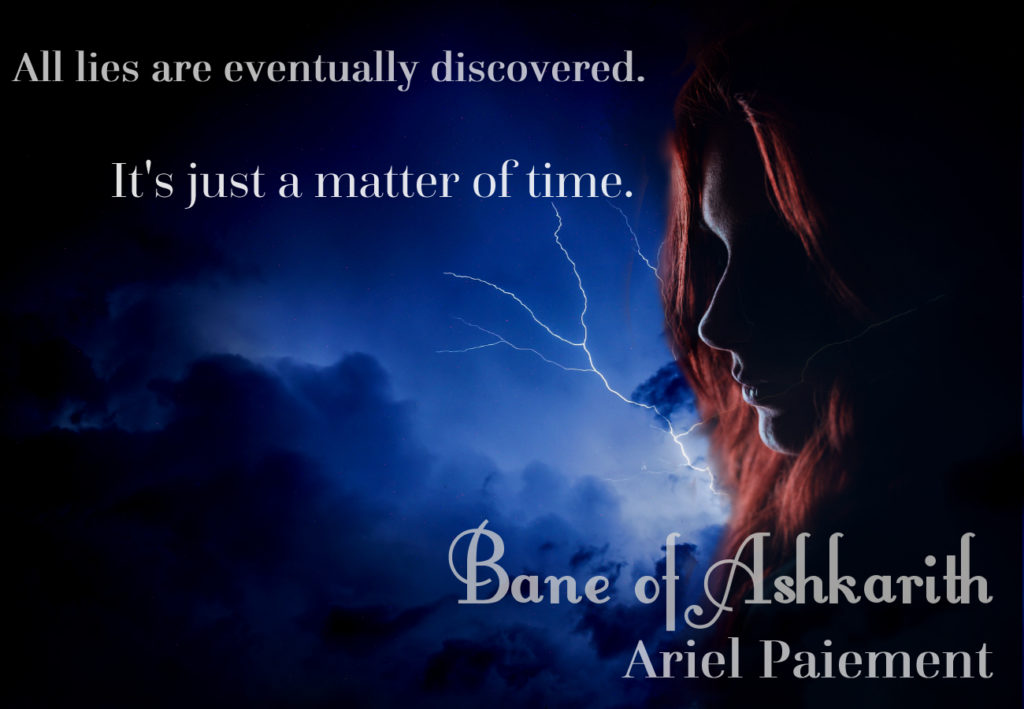
What is your blurb or synopsis of the book?
Kaidan Tadegan is working on a new site trying to prove the myth that two armies of the gods clashed there. While on the dig site, he discovers the evidence he’s looking for, but he gets more than he bargained for when he discovers a woman’s bones in a section of the dig site where no other remains have been found.
As he digs the bones out, he discovers a journal with the woman’s body, which tells a story that, if true, will turn the myths of the old world and the established concepts of good and evil on their heads. Startled by the find, Kaidan sets out to discover whether the diary’s claims have any validity.
But when the diary leads to a city that’s supposedly long gone, Kaidan’s journey becomes more difficult than expected. Things become even more tangled when he discovers that the city isn’t gone, but it’s no place for the living.
Unable to give up on his quest, he forges ahead. What lies ahead is uncertain, and even more uncertain is whether Kaidan will survive this quest. He has only two questions in his mind. Will he find the truth in this city of the dead? And will the world accept the truth?
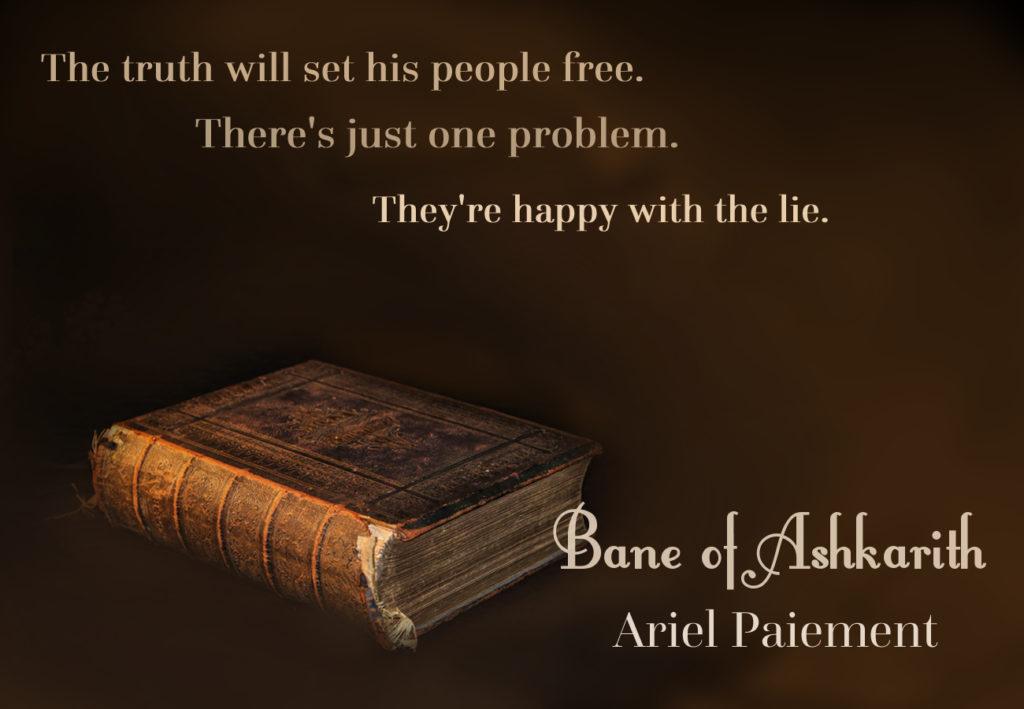
Share an excerpt
KAIDAN Tadegan straightened for a moment, pausing in his work. He wiped the sweat from his brow and craned his neck to see over the hill’s rise. The rest of the dig crew was still working on the opposite side of the hill. Stretching, he picked his shovel back up and returned to digging into the side of Dubarin Hill.
He worked with fervor but also with care, not wanting to damage anything. The sun glared down on him, roasting him alive, and he wiped the back of his neck with a cloth. Nothing had rewarded him for his labor yet, but that didn’t mean it wouldn’t. Perhaps he might find something on this side of the hill to answer the questions they’d come here to answer.
He took a deep breath, the musty scent of freshly turned soil filling his senses. Well, even if they never determined whether those who had clashed here were the old gods, they’d at least proven that there had been a battle. That was something. They could hold their heads high when they spoke to the king of Argos about the dig, and when they returned to the Society of the Learned, they’d have something to report.
The hole he was digging had turned into an open-roofed tunnel that sloped gradually downward as he went. Perhaps he’d gone a bit overboard. But he had a good feeling about this area. He could just sense it in his bones. There was something here. He just had to find it.
At around seven feet down into the side of the hill, his shovel struck something with a dull thud. He tested the soil with the tip of the shovel, trying to determine what it was. When he shifted some more dirt, he saw a flash of white under the sun. More bones?
Kaidan knelt in the hole and brushed the loose layer of dirt away. The yellow-white bones of a corpse glared up at him in the harsh rays of the sun, dirt still packed around the majority of the remains. He hadn’t found any bones on this side of the hill, and he’d begun to think the battle hadn’t raged this far. Perhaps they just hadn’t dug in the right places. It seemed they’d given up too soon.
Kneeling, he brushed the dirt away and grabbed a trowel, gently clearing packed clods of dirt and loose soil away from the corpse. When he had, he backed further up the slope and sat on his heels, staring down at it.
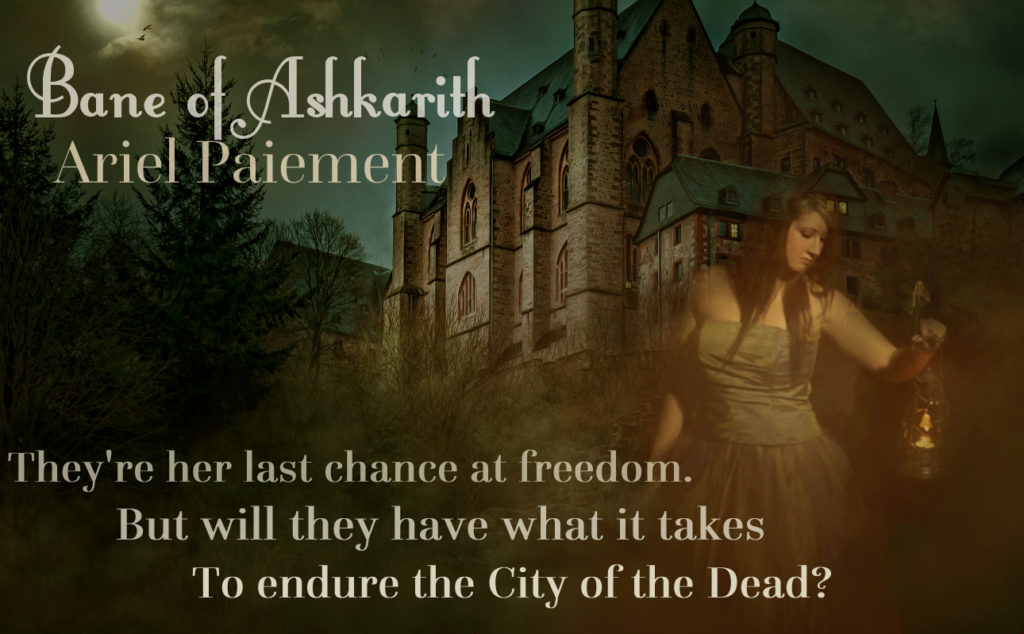
Inside the tunnel, the bones rested. Time and worms had rotted through the clothing of the deceased individual. The slender facial structure of the skull and the tiny stature indicated it was a woman. He frowned. Who is this? They hadn’t found any women’s corpses in the battlefield. What was this one doing all by herself out here?
A book lay locked against the corpse’s chest, her skeletal hands clutching it to her even in the rigor of death. He leaned down, seeking to pry it from the hands of the skeleton. The hands wouldn’t budge. Strange. The tendons were long gone. Nothing should be stopping him from moving the bones. Kaidan put his hands on his hips. Well, destroying the corpse wouldn’t do. Too disrespectful to the dead. He’d have to try a different angle. Jumping down into the hole again, he tried to slide the book out of the corpse’s grasp.
This time, the hands relinquished their prize, and he stared down at the book’s unmarked leather cover, which was worn with age and crusted in dirt. A quiver ran through him, and he grinned. What treasures of knowledge did this find contain? He took a closer look at it, rubbing at the dirt on the corners before pausing in his attempts to clean the item. The leather binding was in remarkable condition for the age of the corpse.
He glanced back at the bones. Far too old for the condition of the book. So how had the skeleton come to be clutching the book in the tight grip of death? He clambered back up to the mouth of his open-roofed tunnel and sat down, dropping the book beside him. What secrets did the skeleton hold that she would never share now? His mind whirred through the possibilities, and he glanced down at the book. Perhaps it held the answers.
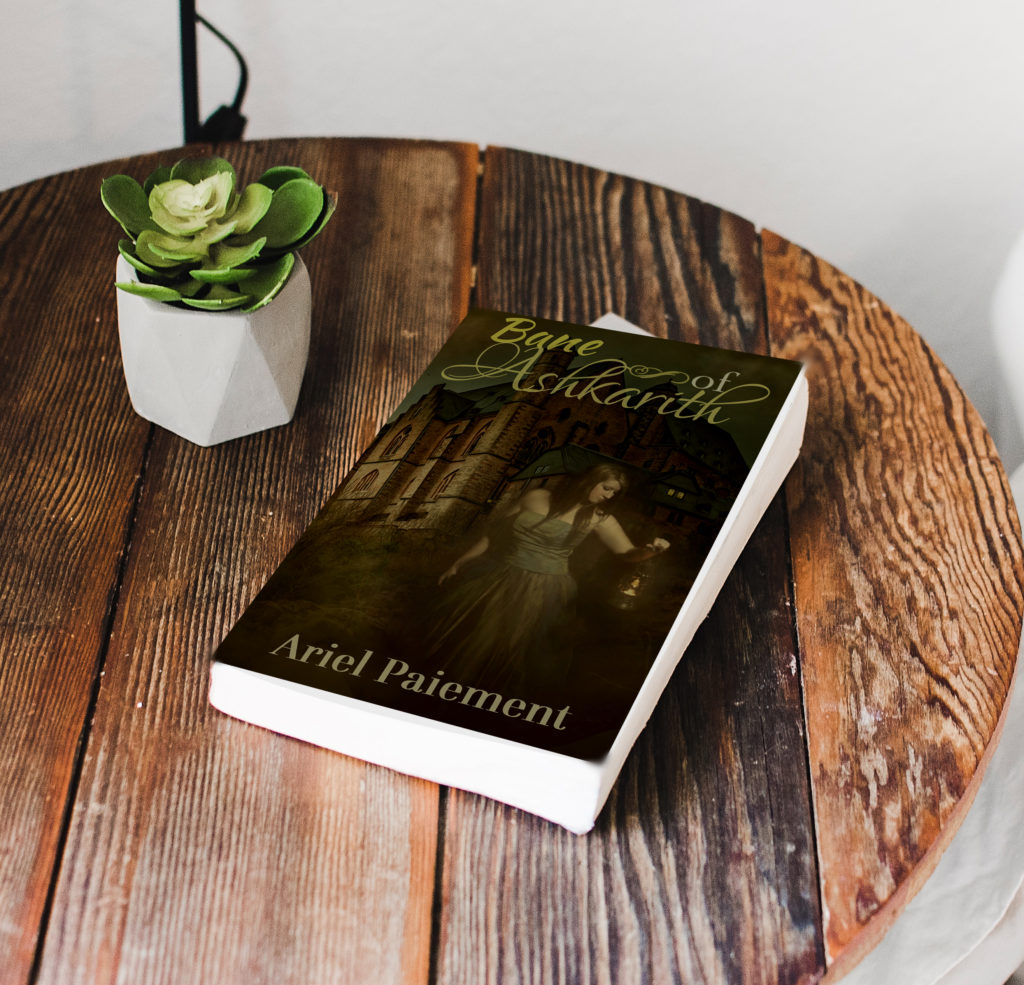
Do you have a favorite scene?
This one is tough because I have lots that I like. But I’d say one of my favorite scenes takes place after the air captain, who transported the two main characters to the area around Ashkarith, has just picked them back up at a village in the same area. The two had just returned from their trip into Ashkarith, and they were looking for an air ship to take them home when he showed up. I love the scene because the two main characters are so confused about how the captain knew to show up, and the banter between the three as they reunite was a lot of fun to write. But I think my favorite thing about the scene is the last part where the captain tells them that “sometimes people would rather stay blind” to the truth. This is really the pivotal moment where Kaidan and Zerua come face to face with what it might cost them to tell the truth. They knew before this moment, but now it really sinks in fully, and they make the final decision that they’re going to share the truth they uncovered anyway. They’d been struggling with that very decision the entire novel, and here they finally settle that struggle.

What advice would you give a beginner?
Keep writing, and don’t ignore the advice of those who have gone before you. Don’t let your pride or your insecurity get in the way of your growth. I’ve known writers on both sides of the spectrum, and both end up quitting. Writing is hard work. Whether you tend to have a better opinion of your work than you should or are more insecure about it than you should be, you need to understand that what you’re writing is going to stink—at first. But that’s okay. That’s why you need to stick with it. Because the only way you can stop stinking at it is to work at it and to learn from the people who have already walked the path you’re now taking. If you enjoy it, don’t give up even when it’s hard.
Be humble and have an honest perspective of your work. Know your flaws, but know your strengths too. Then find the ways you can fix the flaws and improve the strengths. Never turn down free help, no matter how harsh the person might seem.
Not everyone will be a fan, but knowing why they’re not a fan might help you find a way to convert them to being part of your fan group later on. You don’t get that chance if you dismiss their criticism just because it doesn’t paint a perfect picture of your work.
There’s a grain of truth even in the harshest critiques most of the time. Be discerning and don’t swallow everything you’re told—this is where reading books on writing and learning about the craft from published authors and well-known writers or editors helps—but at least consider everything you’re given for a moment aside from pride or insecurity.
Social media links:
Other: Wattpad